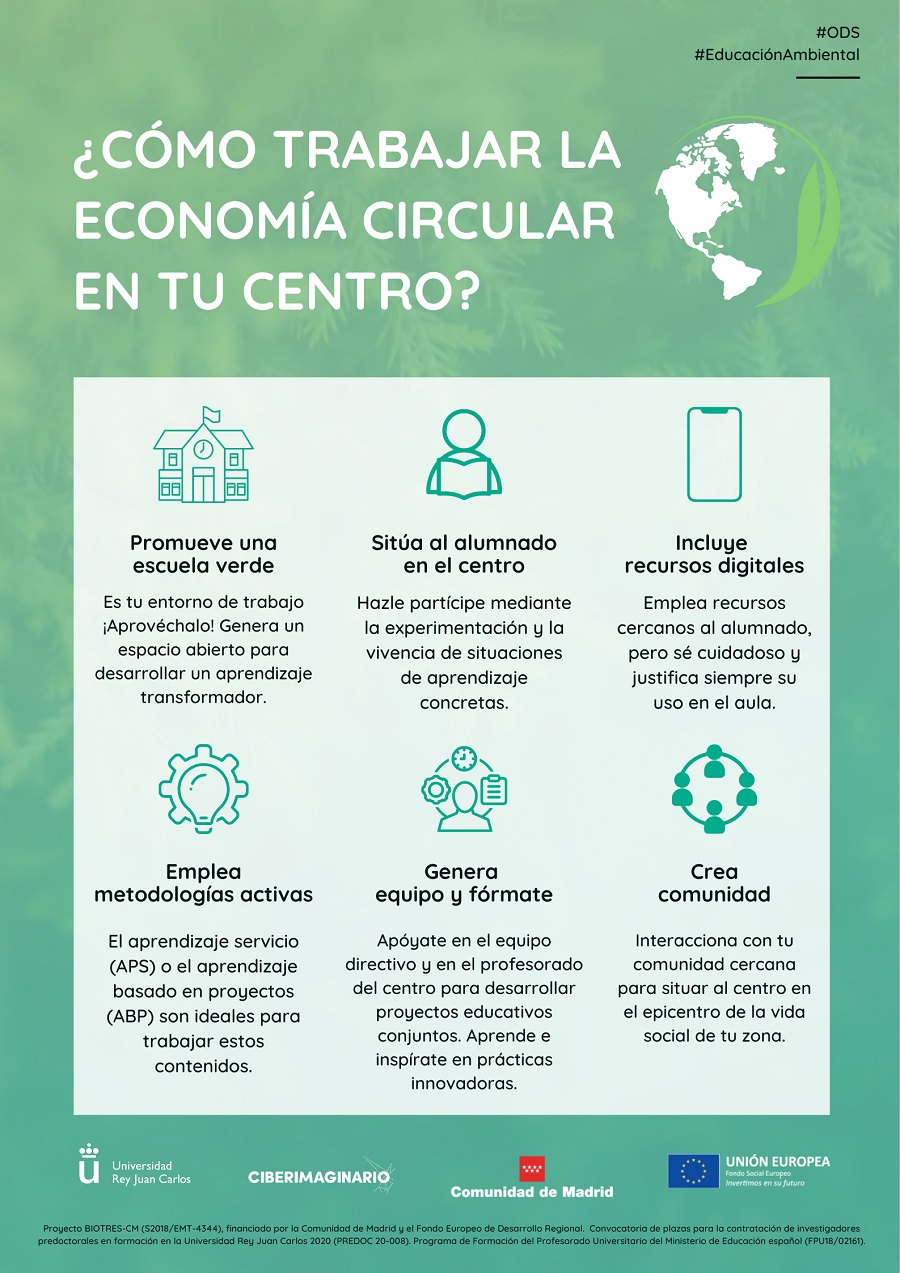Irene Vega
The research carried out by the group cyberimaginary of the URJC has focused on identifying the characteristics and properties educational methodologies and resources should have to promote environmental awareness in the classroom.
The results of the study, recently published in the Journal of Educational Research, show that the school should stimulate transformative learning to promote ecological awareness and environmental literacy in students. “The environmental urgency requires that awareness actions be carried out from different perspectives. The school, in charge of training citizens, is positioned as a fundamental environment to generate transformative, reflective and critical learning on environmental issues”, highlights Alejando Carbonell, co-author of the study and researcher of the Ciberimaginario group.
To carry out the research, the scientific team has conducted interviews with a total of fifty-three agents from the educational community, including technicians and managers from the Ministry of Education and Vocational Training, as well as from the different educational departments of the seventeen Autonomous Communities. In addition, two discussion groups have been set up with eleven trainers of trainers, another two groups with thirteen teachers of different educational levels and a group with five researchers from three Spanish universities.
The analytical procedure that they have used is based on the application of the Grounded Theory or Grounded theory, a qualitative technique that allows identifying and understanding aspects and properties of the collected discourses. The results obtained are focused on the design of interventions in the classroom so that issues related to sustainability, the 2030 Agenda, the Sustainable Development Goals and the Circular Economy are worked on efficiently. “For this, it is essential to implement methodologies and resources that encourage reflection and participation in the classroom based on experimentation and the experience of learning situations that encourage environmental awareness. It is also very important to include active methodologies in the classroom such as service learning (APS) or project-based learning (ABP)”, explains the URJC researcher.
To make it easier for the research results to reach both educational centers and teacher training centers, a poster has been prepared that summarizes how to work the circular economy in the classroom. The poster can be downloaded at: https://files.ciberimaginario.es/06-pdfs/2023/rie/Poster_RIE.pdf
This work is part of BIOTRES-CM Project (S2018/EMT-4344), co-financed by the Community of Madrid, the European Social Fund and the European Regional Development Fund.
In the future, within the framework of the project eCOMCIENCE (PID2021-127019OB-I00), financed by the Ministry of Science and Innovation (AEI), the findings obtained in different educational centers in the Community of Madrid and Castilla la Mancha will be applied.




